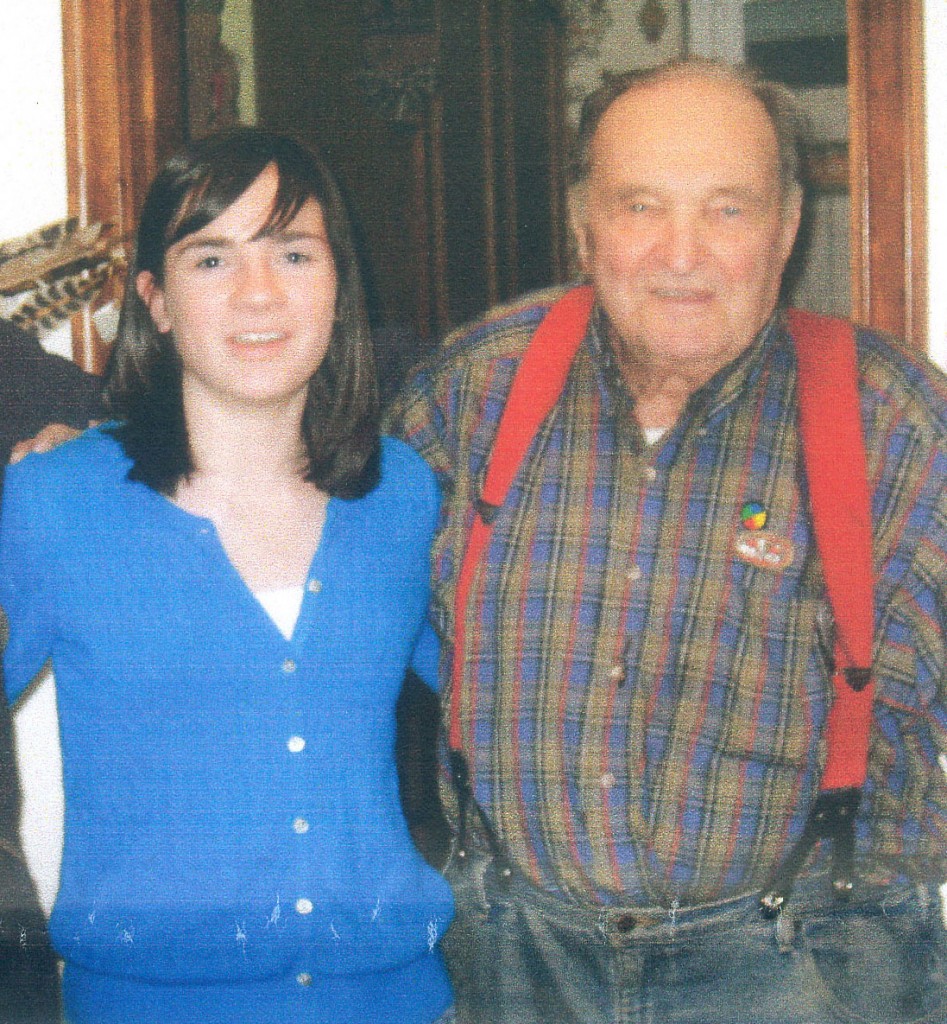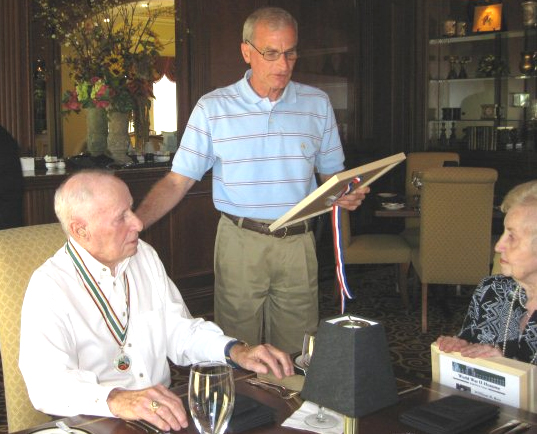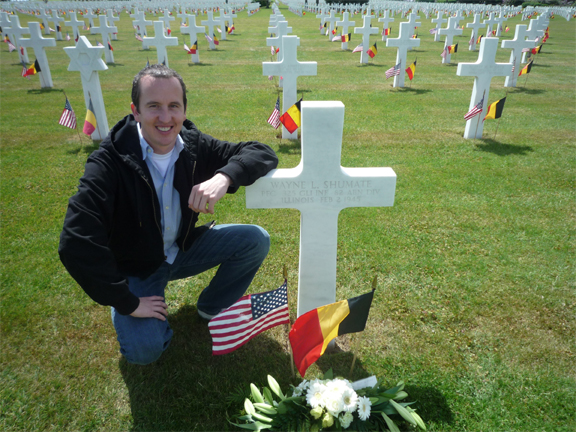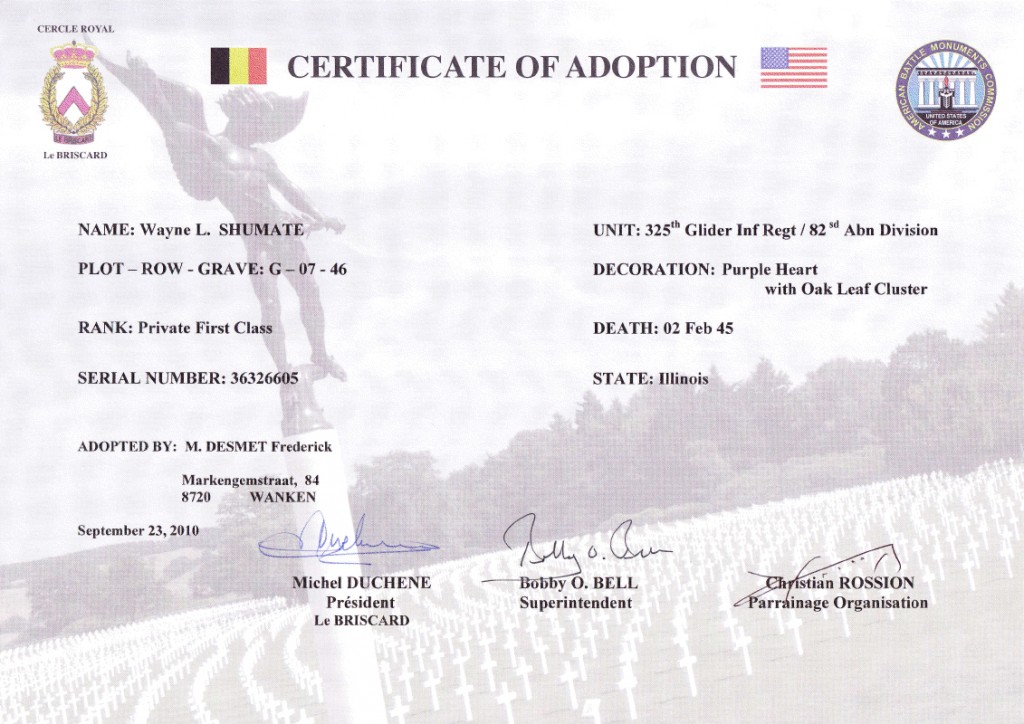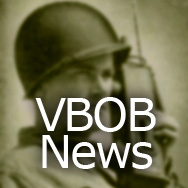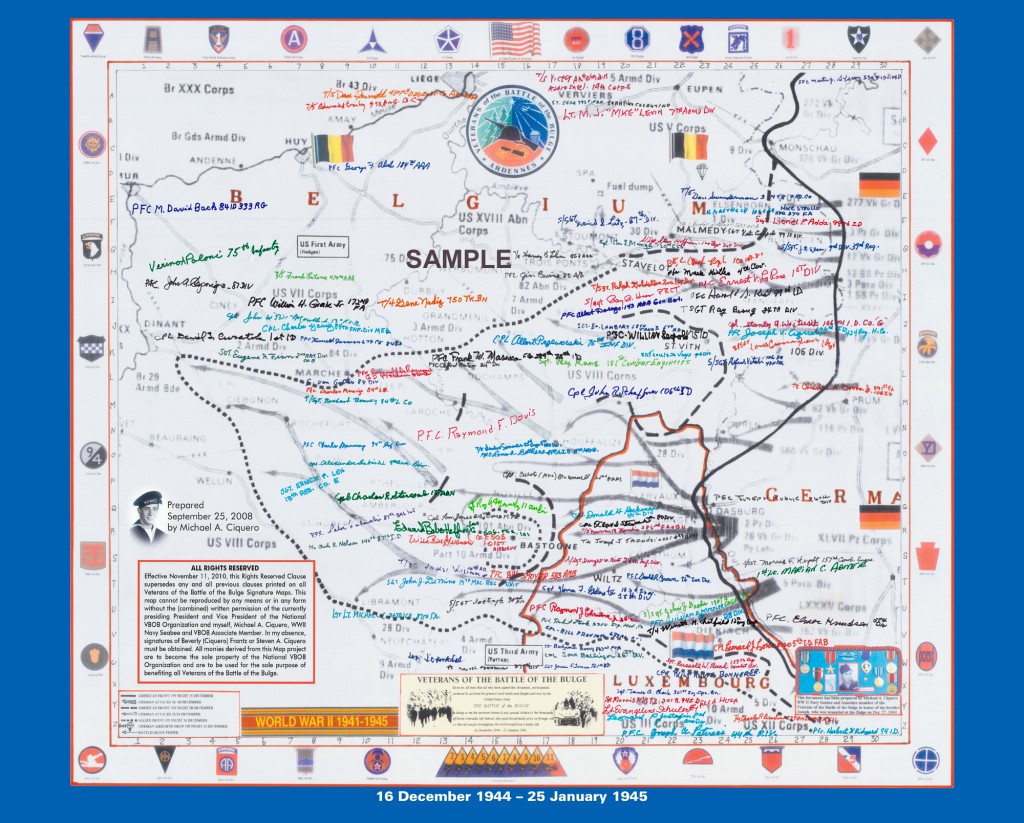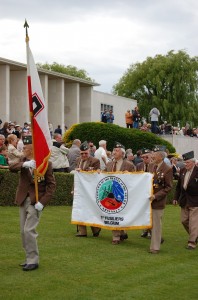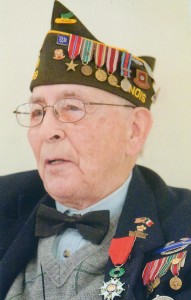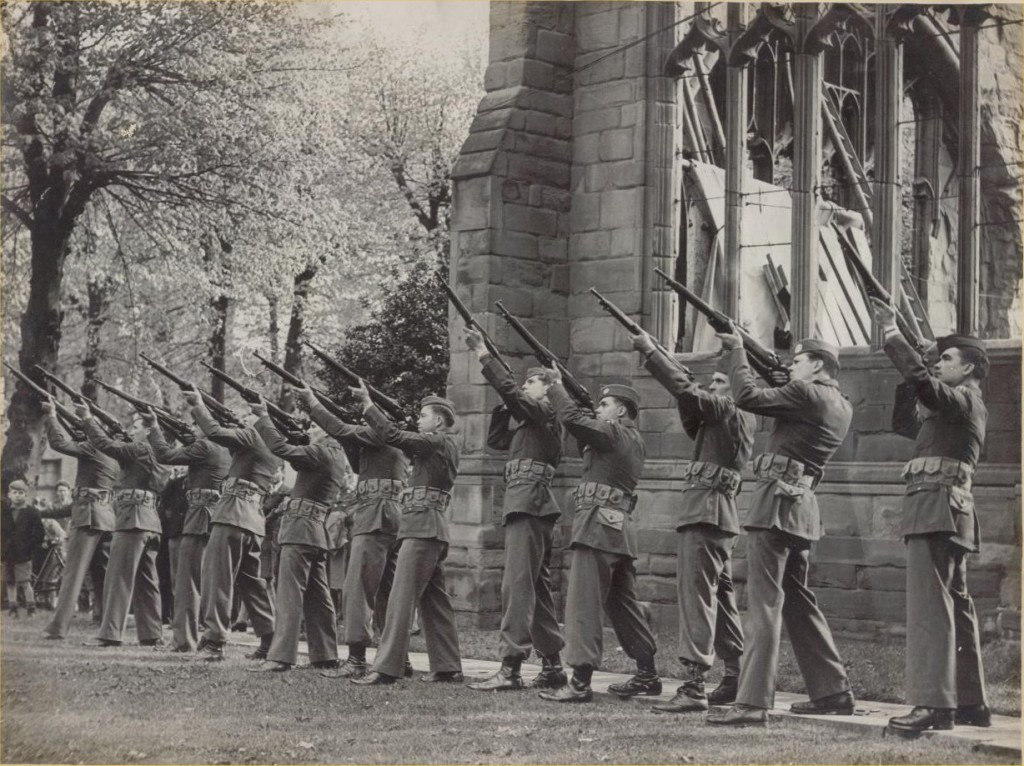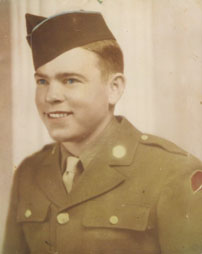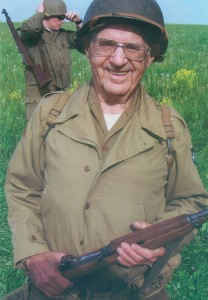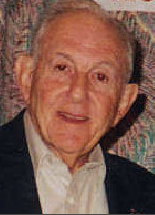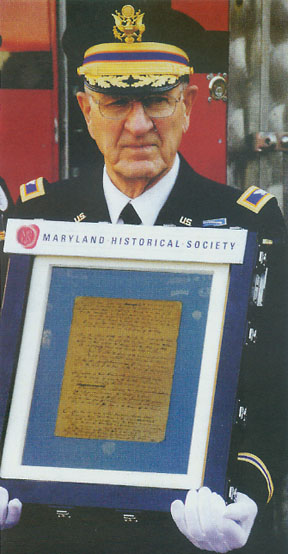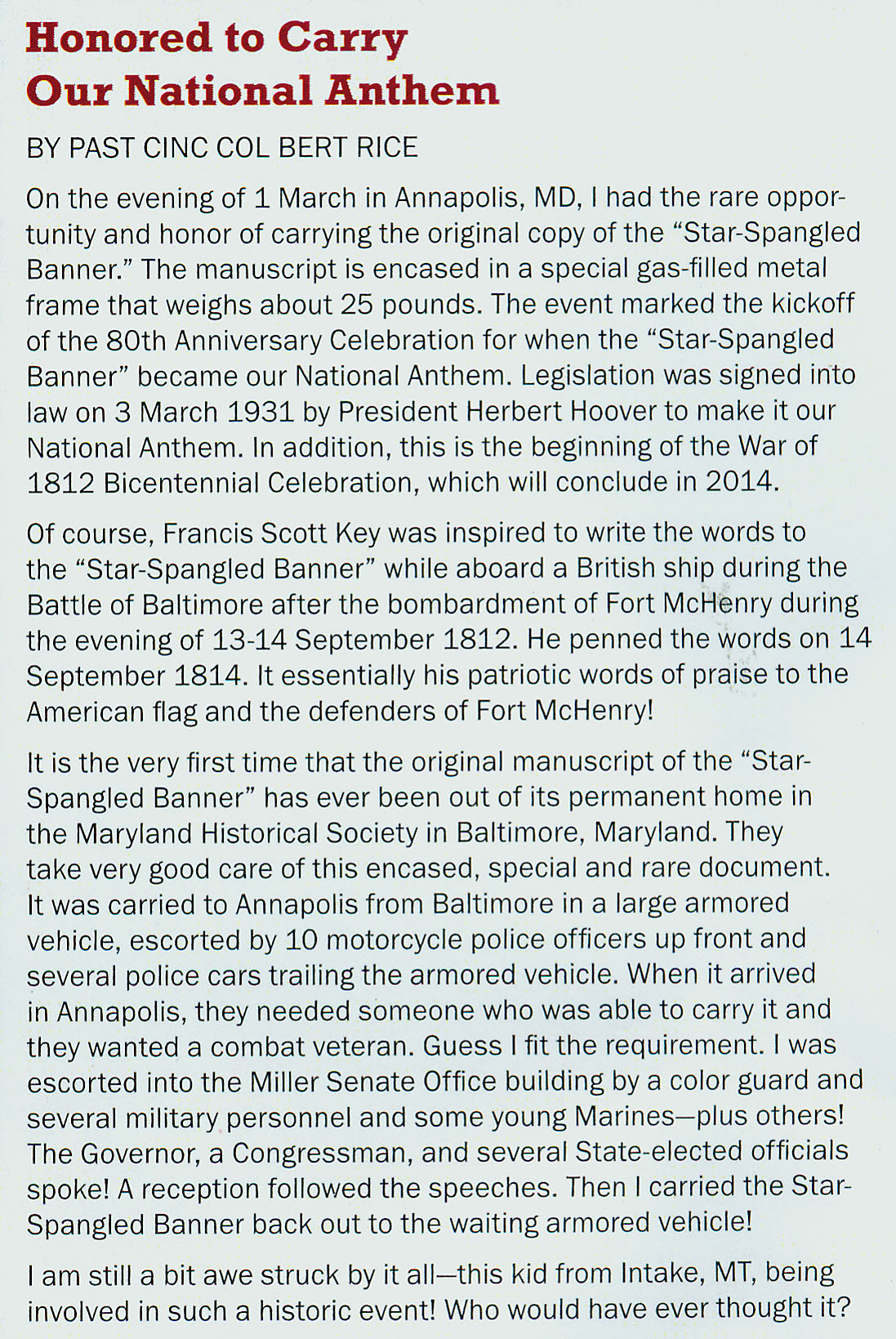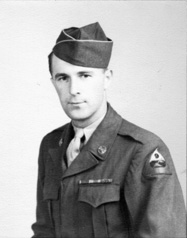Interview: Survivor of the Battle of the Bulge
by Anna Davis
I have always been intrigued by the people who lived through and survived World War II. I enjoy watching the HBO series “The Band of Brothers” directed by Tom Hanks and Steven Spielberg. A particular battle that was life threatening for many American troops was the “Battle of the Bulge.” This particular battle took place in Belgium and included 52 days of combat. The troops who fought during this battle were not properly equipped for the weather and the temperatures were extremely cold. I wanted to know the details about the conditions of the “Battle of the Bulge.”
I casually know a man who attends my church named Richard Hugh Wheeler. Every Sunday, he is the gentleman who greets and opens the doors for everyone. By purely looking at his physical appearance, I would have never guessed he was 86 and a WWII veteran. When I learned he actually survived the “Battle of the Bulge,” I knew he was the perfect candidate for my interview. When I asked if he would oblige me, he was very enthusiastic. Mr. Wheeler was a credible source because he was a participant in this renowned event and lived through a very challenging time period. The interview took place in person on March 3, 2011 at the Wheeler residence.
The first couple of questions I asked Mr. Wheeler were background questions to lead up to the “Battle of the Bulge.” I wanted to know prior experience, skills, and the branch of the army he served. He told me he was 20 to 21 years old during the war. Mr. Wheeler was a trained paratrooper with a total of nine jumps, one into combat. He chose to be a paratrooper because it paid $60 more per month than other positions. Mr. Wheeler said his mother specifically told him not to be a paratrooper, but he became one In spite of her request. Mr. Wheeler was in seven battles including the “Battle of the Bulge.” He received a battle star for each of the seven.
Mr. Wheeler was in the Ardennes Forest during the “Battle of the Bulge,” and I wanted to know about the conditions of the Ardennes and what part of the battle he experienced. Specifics were important to me, so I could make a mental picture. He began by telling me that there were 52 total days in the battle, but his platoon was only there for thirty six. However, those 36 days were the most difficult days compared to any other combat Mr. Wheeler experienced. For the entire 36 days, the troops were outside. December of 1944 is still on record as one of the coldest winters in Europe’s recorded history.
The average temperature ranged from 10 to 20 degrees below zero. All the men were without winter clothing; Mr. Wheeler was only in his jump gear. It is beyond my imagination to think about how cold it was. Also, Mr. Wheeler did not have any gloves even when there was snow on the ground. Somehow during this time, Mr. Wheeler manage to save all his extremities. He still suffers from frostbite damage today, but it is his interior circulation that is the reminder. Everyone slept in “fox holes” which the troops dug with their personal shovels. These holes were not works of art; they were about 18″ by 20″ and just deep enough to crouch in. There was no wandering around and talking to friends. A person spoke when spoken to, advanced when commanded, and did not even sleep until told to do so. Mr. Wheeler was not even allowed to make a fire, or else the enemy would spot him. For all 36 days, Mr. Wheeler barely slept at all. Most of the time all he did was move forward and dig more fox holes, and fire at an often unseen enemy.
Next, I asked Mr. Wheeler about his hygiene. He only had one pair of clothes at the battle, and he slept in a dirt hole. I wondered if he ever bathed. Mr. Wheeler said only once did the group shower in 36 days, and that it was against his will. One of the men in Mr. Wheeler’s company had an Infection called scabies. Everyone was commanded to shower. There were showers set up outside and everyone had to strip down completely. The temperature was still ten below. Mr. Wheeler said “that was when I thought I was going to die.” Showering was not worth it in the intense cold. The men got their clothes washed, but not dried. I asked him how he managed to get his clothes dry in the extreme cold. He said you just had to lay on them over night.
I was curious to whether Mr. Wheeler was ever without food. Among all the discomforts of being cold and dirty, hunger was not an issue. He was always supplied with “K” or “C” rations. Both of these are bundles of food that provide three daily meals. The letters do not stand for anything, they are just the letters of the alphabet. Mr. Wheeler was not supplied with gourmet hot steaming food, but he was not hungry.
When I asked Mr. Wheeler how he had been able to survive the bitter cold and uncomfortable sleeping conditions, he said his basic training prepared him well. With a lot of discipline, and learning not to complain, he was suited for the roughest of situations.
After talking to Mr. Richard Wheeler, I have a much better understanding about what WWII veterans went through. I was mortified to think about the cold, and everyone’s personal hygiene. Mr. Wheeler also mentioned a story of a fellow soldier who urinated in his fox hole. The next morning, his legs were frozen to the ground. I respect Mr. Wheeler’s ability to live through the conditions he described. Overall, I felt my interview with Mr. Wheeler really helped my search and elevated my personal opinion about WWII veterans. I greatly appreciate the time Mr. Wheeler dedicated to me and all the information he was willing to supply.
